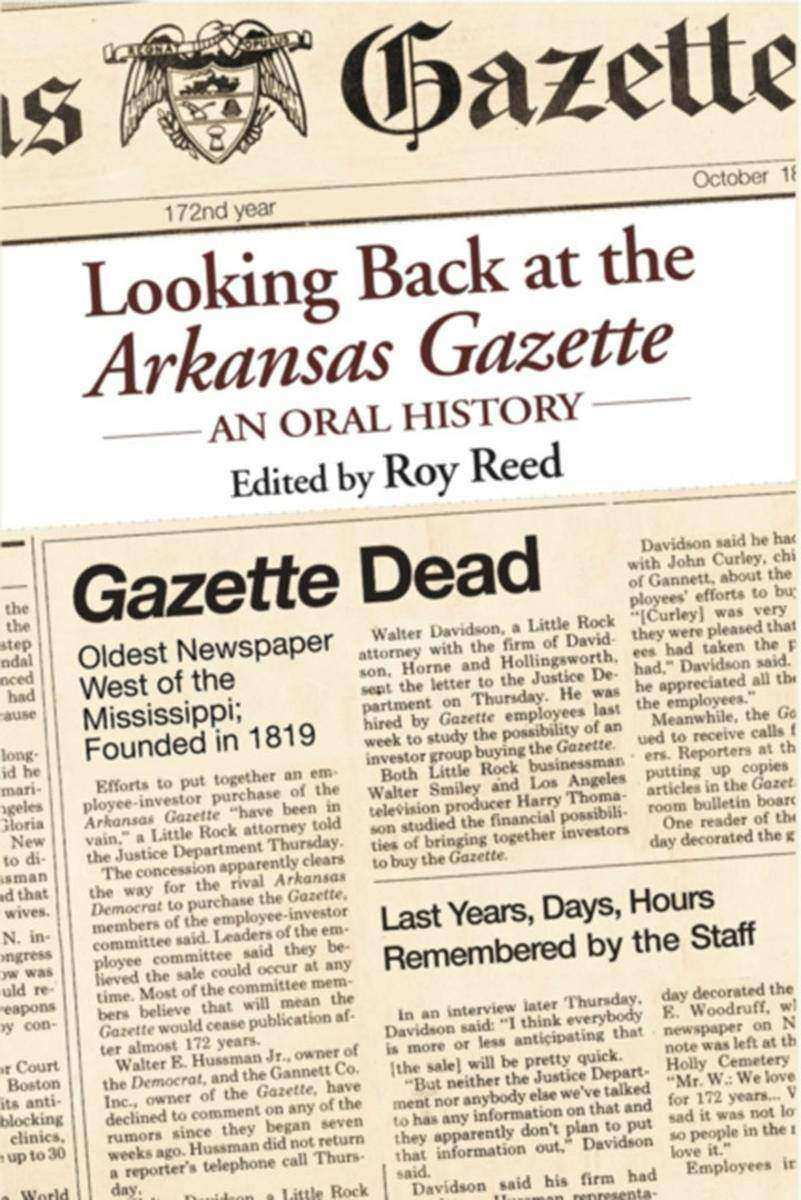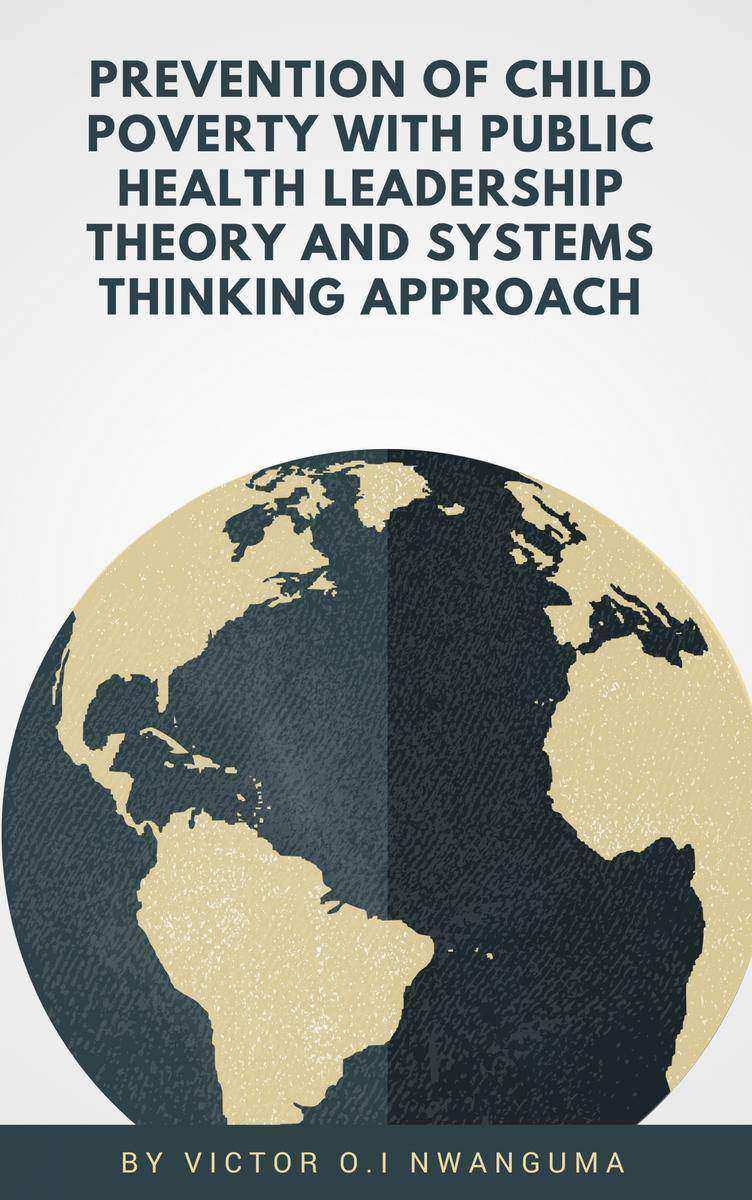
Odd Thomas Series Books 1-5
¥261.24
The 400 million copy worldwide bestseller Dean Koontz is at his very best in this critically-acclaimed page-turner – soon to be a major motion picture. Find out why Odd Thomas is the master storyteller’s most-loved creation. Odd by name, a hero by nature. He’s Odd. Odd Thomas, to be precise. Genius fry-cook at the Pico Mundo grill; boyfriend to the gorgeous Stormy Llewellyn – and possibly the only person with a chance of stopping one of the worst crimes in the bloody history of murder… Something evil has come to the desert town that Odd and Stormy call home. It comes in the form of a mysterious man with a macabre appetite, a filing cabinet full of information on the world’s worst killers, and strange, hyena-like shadows following him wherever he goes. Odd is worried. He knows things, sees things – about the living, the dead and the soon to be dead. Things that he has to act on. Now he’s terrified for Stormy, himself and Pico Mundo. Because he knows that on Wednesday August 15, a savage, blood-soaked whirlwind of violence and murder will devastate the town. Today is August 14. And Odd is far from sure he can stop the coming storm…

Martin Faber: The Story of a Criminal
¥260.85
William Gilmore Simms's (1806-1870) body of work, a sweeping fictional portrait of the colonial and antebellum South in all its regional diversity, with its literary and intellectual issues, is probably more comprehensive than any other nineteenth-century southern author. Simms's career began with a short novel, Martin Faber, published in 1833. This Gothic tale is reminiscent of James Hogg's Confessions of a Sinner and was written four years before Edgar Allan Poe's "e;William Wilson."e; Narrated in the first person, it is considered a pioneering examination of criminal psychology. Martin seduces then murders Emily so that he might marry another woman, Constance. Martin confesses to his friend and is killed after attempting to stab Constance when she visits him in jail. The book was immediately successful and was well received by the northern media, thus starting Simms's successful career as a writer, one that would rank him as the only major southern literary figure besides Poe before the Civil War. As with other volumes in the Arkansas Edition of Simms's work, this volume includes a critical introduction by the editor and a Simms chronology, as well as appendices dealing with textual matters. This edition also includes Simms's 1829 story, "e;Confessions of a Murderer,"e; which was the germ for his first book of fiction.

Looking Back at the Arkansas Gazette
¥260.75
The Arkansas Gazette was born in a log cabin November 20, 1819, on a bank of the Arkansas River. A local establishment donated a barrel of whiskey to celebrate the event. The first issue carried a complaint from a citizen that the town had too many lawyers. When the paper died 167 years later, the problem was not lawyers but corporate executives who had found themselves, to their confusion, in charge of the oldest newspaper west of the Mississippi and not knowing what to do with it.

Git Essentials - Second Edition
¥259.95
Dive and explore into the latest addons of the latest Git.About This Book·Master all the basic concepts of Git to protect your code and make it easier to evolve·Use Git proficiently, and learn how to resolve day-by-day challenges easily·This step-by-step guide is packed with examples to help you learn and work with Git's internalsWho This Book Is ForIf you are a software developer with little or no experience of versioning systems, or you are familiar with other centralized versioning systems, then this book is for you.If you have experience in server and system management and need to broaden your use of Git from a DevOps perspective, this book contains everything you need.What You Will Learn·Master Git fundamentals·Be able to "visualize," even with the help of a valid GUI tool·Write principal commands in a shell·Figure out the right strategy to run change your daily work with few or no annoyances·Explore the tools used to migrate to Git from the Subversion versioning system without losing your development history·Plan new projects and repositories with ease, using online services, or local network resourcesIn DetailSince its inception, Git has attracted skilled developers due to its robust, powerful, and reliable features. Its incredibly fast branching ability transformed a piece of code from a niche tool for Linux Kernel developers into a mainstream distributed versioning system. Like most powerful tools, Git can be hard to approach since it has a lot of commands, subcommands, and options that easily confuse newcomers.The 2nd edition of this very successful book will help you overcome this fear and become adept in all the basic tasks in Git. Building upon the success of the first book, we start with a brief step-by-step installation guide; after this, you'll delve into the essentials of Git. For those of you who have bought the first edition, this time we go into internals in far greater depth, talking less about theory and using much more practical examples.The book serves as a primer for topics to follow, such as branching and merging, creating and managing a GitHub personal repository, and fork and pull requests. You'll then learn the art of cherry-picking, taking only the commits you want, followed by Git blame. Finally, we'll see how to interoperate with a Subversion server, covering the concepts and commands needed to convert an SVN repository into a Git repository.To conclude, this is a collection of resources, links, and appendices to satisfy even the most curious.Style and approachThis short guide will help you understand the concepts and fundamentals of GIT is a step-by-step manner.

Mastering MongoDB 3.x:An expert's guide to building fault-tolerant MongoDB appli
¥259.95
An expert's guide to build fault tolerant MongoDB applicationAbout This Book·Master the advanced modeling, querying, and administration techniques in MongoDB and become a MongoDB expert·Covers the latest updates and Big Data features frequently used by professional MongoDB developers and administrators·If your goal is to become a certified MongoDB professional, this book is your perfect companionWho This Book Is ForMastering MongoDB is a book for database developers, architects, and administrators who want to learn how to use MongoDB more effectively and productively.If you have experience in, and are interested in working with, NoSQL databases to build apps and websites, then this book is for you.What You Will Learn·Get hands-on with advanced querying techniques such as indexing, expressions, arrays, and more.·Configure, monitor, and maintain highly scalable MongoDB environment like an expert.·Master replication and data sharding to optimize read/write performance.·Design secure and robust applications based on MongoDB.·Administer MongoDB-based applications on-premise or in the cloud·Scale MongoDB to achieve your design goals·Integrate MongoDB with big data sources to process huge amounts of dataIn DetailMongoDB has grown to become the de facto NoSQL database with millions of users—from small startups to Fortune 500 companies. Addressing the limitations of SQL schema-based databases, MongoDB pioneered a shift of focus for DevOps and offered sharding and replication maintainable by DevOps teams. The book is based on MongoDB 3.x and covers topics ranging from database querying using the shell, built in drivers, and popular ODM mappers to more advanced topics such as sharding, high availability, and integration with big data sources.You will get an overview of MongoDB and how to play to its strengths, with relevant use cases. After that, you will learn how to query MongoDB effectively and make use of indexes as much as possible. The next part deals with the administration of MongoDB installations on-premise or in the cloud. We deal with database internals in the next section, explaining storage systems and how they can affect performance. The last section of this book deals with replication and MongoDB scaling, along with integration with heterogeneous data sources. By the end this book, you will be equipped with all the required industry skills and knowledge to become a certified MongoDB developer and administrator.Style and approachThis book takes a practical, step-by-step approach to explain the concepts of MongoDB. Practical use-cases involving real-world examples are used throughout the book to clearly explain theoretical concepts.

Sigma Force Novels 1
¥258.85
Sigma Force Novels 1 by James Rollins has de*ive copy which is not yet available from the Publisher.

Blossom Street Bundle (Book 6-10): Twenty Wishes / Summer on Blossom Street / Ha
¥258.00
Perfect for fans of Maeve Binchy' - Candis Welcome to Blossom Street – where dreams come true. Fall head over heels in Blossom Street with the second five books in Debbie Macomber’s bestselling series bundled together for perfect reading pleasure. Including: Twenty Wishes, Summer on Blossom Street, Hannah’s List, A Turn in the Road and Thursdays at Eight. Make time for friends. Make time for Debbie Macomber.

The Art of the Film:Fantastic Beasts and Where to Find Them
¥257.90
Step inside the world of the talented art departments who, led by Academy Award?-winning production designer Stuart Craig, were responsible for the creation of the unforgettable characters, locations and beasts from the eagerly anticipated new adventure in J.K. Rowling’s Wizarding World. The Art of Fantastic Beasts and Where to Find Them, edited by Dermot Power, concept artist on the film, takes you on a magical journey through a design process every bit as wonderful as that encountered by Newt Scamander in the wizarding world:from the earliest gatherings of the artists, designers and filmmakers to the magical time of the film’s production itself at Leavesden Studios. Bursting with hundreds of production paintings, concept sketches, storyboards, blueprints and matte paintings, and filled with unique insights about the filmmaking journey from Stuart Craig and the artists themselves, this superb book – officially licensed by Warner Bros. Consumer Products – presents a visual feast for readers, and will welcome fans of Harry Potter films into the world of Fantastic Beasts and Where to Find Them.

Yorkshire Dales (Collins New Naturalist Library, Book 130)
¥257.90
A definitive natural history of the Yorkshire Dales, covering the range of wildlife habitats, rich cultural heritage and ecological history of one of our best-loved National Parks. The Yorkshire Dales National Park is a special place: its outstanding scenery and the diversity of habitats is perhaps unrivalled in any other National Park in Britain. This rich biodiversity has been a great attraction to naturalists for over two centuries. But to fully appreciate the present-day plant and animal communities, their status and the constraints upon them, it is important to understand the geology and landscape history of the National Park, including the role that human populations have played in modifying the environment. In this long-anticipated New Naturalist volume, John Lee introduces the National Park, exploring both its geology and geomorphology, and describing the role of early naturalists and the Yorkshire Naturalists Union in recording and understanding the natural history of the Dales. He describes the major habitats or groups of habitats which underline the ecological importance of the Dales. Lee covers the earliest settlement times to the modern day, and he focuses in particular on the most iconic plant of the Dales, the Lady’s Slipper Orchid, arguably the rarest of native British plants, which until recently was thought to be confined to a single plant in the Dales. Lee takes a historical approach, describing its near eradication and early attempts to conserve it – including the establishment of a secret society – concluding with recent scientific conservation approaches.

Terns (Collins New Naturalist Library, Book 123)
¥257.90
This New Naturalist volume provides a much-anticipated overview of these fascinating birds – the first book on the natural history of British and Irish terns since 1934. Terns are small seabirds that are commonly seen along coastlines and estuaries in the summer months – their graceful flight and command of the air are among their most attractive features. Most of the five species of terns breeding in Britain and Ireland today are under intensive management, involving protection from predators, human interference, egg-collecting, recreational activities, land-use changes, and a range of issues concerning climate change, including rising sea levels and flooding of low-lying colonies. If these protective measures were abandoned then the numbers of terns would inevitably decline, with the possibility of several species ending up on the endangered list. Covering the history of terns in Britain and Ireland, David Cabot and Ian Nisbet explore these diverse issues as well as offering a comprehensive natural history of these stunning seabirds. Drawing on a wealth of new information and research, the authors focus on migrations, food and feeding ecology as well as breeding biology and behaviour. Perhaps most importantly, they highlight recent conservation issues and prospects, and what this means for the future of terns.

Beetles (Collins New Naturalist Library)
¥257.90
Richard Jones is a nationally acclaimed entomologist, a fellow of the Royal Entomological Society, fellow of the Linnean Society, and past president of the British Entomological and Natural History Society. He has been fascinated by wildlife since a childhood exploring the South Downs and Sussex Weald after plants and insects – especially beetles. He now writes about insects, nature and the environment for BBC Wildlife, Gardener’s World, Countryfile, the Guardian and Sunday Times and has regular media appearances on programmes such as Springwatch Unsprung, Natural Histories and Open Country. He is the author of several books on science and wildlife.

Falcons (Collins New Naturalist Library, Book 132)
¥257.90
Falcons have been a source of inspiration to writers, artists, historians and naturalists alike. In a much-anticipated volume on one of Britain’s most fascinating group of birds, Richard Sale draws on a wealth of experience and research, providing a comprehensive natural history of the four British breeding falcons. The book takes each of the four breeding species in turn (Kestrel, Merlin, Hobby and Peregrine Falcon), exploring its form, habitat, breeding biology and status, along with a chapter on the hunting techniques of each species.

Brecon Beacons (Collins New Naturalist Library, Book 126)
¥257.90
The first comprehensive book to be published about the wildlife of the Brecon Beacons is a much-anticipated addition to the New Naturalist series, and reveals the natural wonders of this seemingly wild and inhospitable mountain landscape. The Brecon Beacons range across upland Wales and create a varied landscape of extensive cave systems, limestone crags and rich meadows. This variety supports thousands of species, some of which are found nowhere else on Earth. The natural history of the Brecon Beacons is like most parts of the British Isles – inextricably linked to the activities of man across many thousand years. Jonathan Mullard explores the evolving landscape and observes its effects on its native species and habitats. He provides a detailed examination of the geology of the region and the integration of the archaeological and historic landscape with the natural landscape and its fauna. Covering the vast diversity of its mountains and moorlands, rivers and waterfalls, caves, woodlands, wetlands and farmland, he provides an overview of man’s influence on the natural environment over the centuries and the ongoing conservation of the area. A landscape rich in legends, the Brecon Beacons play host to a number of myths involving, among others, King Arthur. Mullard explores these rich tales alongside other cultural landmarks of historical interest, such as the churches and chapels of the area. The culmination of years of research, New Naturalist Brecon Beacons is an inspiring exploration of this diverse and fascinating area.

Lakes, Loughs and Lochs (Collins New Naturalist Library, Book 128)
¥257.90
Another volume in the popular New Naturalist series, this book gives a comprehensive account of the natural history of Britain and Ireland’s inland waters, many of which are popular holiday destinations. The study of life in British lakes and rivers has been traditionally neglected in natural history publications, and yet the intricacies of plant and animal ecology as a whole can be readily studied in a pond or lake. Not since Macan and Worthington’s landmark publication in 1951, Life in Lakes and Rivers – volume 15 in the New Naturalist series – has there been a comprehensive overview of British freshwater life. In Brian Moss’s much-anticipated new volume, he gives a passionate account of the natural history of our lakes, loughs and lochs. Our understanding of lakes has changed enormously since the days of Macan and Worthington. From new techniques using stable isotopes and molecular biology to ambitious approaches using whole lakes for experiments; from advances in chemical methods that detect tiny traces of organic substances to the development of new electronic instruments, it is becoming increasingly urgent to make use of these advances to help maintain and conserve some of the most damaged of the Earth’s ecosystems. Freshwaters form the fascinating threads that stitch together the landscapes of our planet with a myriad of exchanges involving an array of organisms, from algae and insects to hippopotami and otters. Healthy lakes and their shores influence our quality of life and they strengthen the economy. They are important ecosystems that can sustain a healthy balance of aquatic life, provide us with much enjoyment, and help support our socio-economic needs. At the same time they suffer the consequences of human abuses of the land – increasing urbanisation, intensive farming, drainage and an increasing invasion of non-native species, to name but a few. Moss explores the richness of their fundamental ecology, emphasizing the need to view these freshwater systems as a whole, and not to manage or assess them in isolation, as well as the importance of ongoing conservation efforts.

Shallow Seas (Collins New Naturalist Library, Book 131)
¥257.90
Told for the first time in English, Paul Preston’s new book tells the story of a preventable tragedy that cost many thousands of lives and ruined tens of thousands more at the end of the Spanish Civil War. This is the story of an avoidable humanitarian tragedy that cost many thousands of lives and ruined tens of thousands more. It has many protagonists but centres on three individuals. One, Dr Juan Negrín, the victim of what might be termed a conspiracy of fools, tried to prevent it. Two bore responsibility for what transpired. One of those, Julián Besteiro, was guilty of culpable na?vety. The other, Segismundo Casado behaved with a remarkable combination of cynicism, arrogance and selfishness. On 5 March 1939, the eternally malcontent Colonel Casado launched a military coup against the government of Juan Negrín. Ironically, he ensured that the end of the Spanish Civil War was almost identical to its beginning. As Mola, Franco and the other conspirators of 1936 had done, Casado led a part of the Republican Army in revolt against the Republican government. He claimed, as they had done, and equally without foundation, that Negrín’s government was the puppet of the Communist Party and that a coup was imminent to establish a Communist dictatorship. Casado’s ambition was to go down in history as the man who ended the Spanish Civil War. Instead he ensured the Republic ended in catastrophe and shame as Negrin’s attempts to achieve an honourable and negotiated peace with guarantees for the civilian population were thwarted and Franco and his forces wreaked havoc and revenge. Madrid collapsed into civil war and two thousand people died. Refugees fled reprisals in their thousands and those who couldn’t escape met a terrible fate. Paul Preston, the leading historian of 20th century Spain, tells this shocking story for the first time in English. It is a harrowing tale of how the flawed decisions of politicans can lead to tragedy.

Early Humans (Collins New Naturalist Library, Book 134)
¥257.90
Nick Ashton has been a curator at the British Museum for over 30 years, specialising in Lower and Middle Palaeolithic archaeology. He helps curate the extensive stone tool collections from these periods and has directed and published major excavation projects at the Lower Palaeolithic sites of High Lodge, Barnham, Elveden and Hoxne (all in Suffolk). He is currently Co-Director of the Pathways to Ancient Britain Project funded by the Calleva Foundation. His work focuses on the earliest occupation of northern Europe, currently being investigated through fieldwork at Happisburgh (Norfolk), the early human adaptation to northern environments and the investigation of when Britain first became an island.

Owls (Collins New Naturalist Library, Book 125)
¥257.90
Owls have always featured prominently in the mythology and folklore of a variety of cultures. These mysterious nocturnal creatures are thought to be symbols of wisdom, omens of death, and bringers of prophecy. In fact, owls are one of the oldest species of vertebrate animal, with fossils dating back 60 million years. Owls have been a source of inspiration to writers, artists, historians and naturalists alike. In a much-anticipated volume on one of Britain’s most fascinating group of birds, Mike Toms draws on a wealth of experience and research, providing a comprehensive natural history of British owls. The first part of the book covers various aspects of owl taxonomy, origins, anatomy, behaviour and ecology and looks across the British owl species, drawing comparisons and highlighting differences. The second part takes each species in turn to provide a more detailed perspective, fleshing out relevant conservation issues, behaviour and status. Toms explores Britain’s beloved Barn Owl, Tawny Owl and Snowy Owl amongst several others. He uses the vast database and latest research from his work with the British Trust for Ornithology (BTO) to focus particularly on the specifics of owls’ breeding ecology, their dispersal patterns, diet, vocalisations, de*ion, population changes and mortality. He addresses conservation issues, changes in legislation and potential changes in the status of one of Britain’s most iconic birds, providing a fascinating overview of the biology and history of British owls.

最经典英语文库(第十五辑)共15册
¥256.85
告别碎片式阅读,从阅读经典开始。“最经典英语文库”系列丛书(15辑)共15册:《虹》《无意识幻想曲》《邦斯舅舅》《米德尔马契》《十年以后》《贝尔武夫(英国史诗)》《人性论》《褐衣男子》《九三年》《莎士比亚传》《夜与日》《雅各的房间》《铁面人》《契诃夫短篇小说精选集》《首相绑架案》。

1914.–1918.: Povijest Prvoga svjetskog rata
¥255.39
Iat?, ?n cuvintele Aurei Christi, curg?nd abundent, din surse ascunse, fluidul vivifiant al poeziei, s? nu ne temem de retorica majusculelor, al marei Poezii. (Nicolae Balota).Aici totul e grav. Nici ludicul, nici parodicul, nici oboseala contextului postindustrial ?i nici tendin?ele destructurante ale postmodernilor nu au trecere. Modernitatea Aurei Christi e una esen?ial?, organic?, refractar? modelor, n?zuind spre reinterpretarea semnelor ?i universaliilor; ?ntreb?rile pe care ?i le pune ea au fost ?i ale inainta?ilor, iar r?spunsurile transcend achizi?iile, relev?nd evolu?ia con?tiin?ei ?n mers, relev?nd evolu?ia unei creatoare de m?na ?nt?i, cu totul personal?. Scrieri mai noi, Labirintul exilului (2000), Elegii nordice (2002) ?i altele confirma consecven?a cu sine a unei con?tiin?e exemplare. (Constantin Ciopraga)M? auzi tu, oare, ?nstr?inato? Am citit poeziile tale la ceas de sear?, pe o teras?, av?nd ?n fa?? colinele Ierusalimului. Eu nu sunt un bun comentator de poezie, cei care au scris despre poezia ta te-au “prins“ foarte bine, ai for??, un sim? rar al tragicului ?i antene pentru transcenden??, f?r? s? cazi (din fericire) ?n ceea ce se cheam? “poezie religioas?“. E un instinct p?g?n care te fere?te de o excesiva “cre?tinare“ a poeziei chiar ?i ?n Psalmi. (Leon Volovici). (fragment dintr-o scrisoare)E simplu: ?l vad pe Dumnezeu ca pe un partener de dialog, cu care ma cert nu rareori. Citesc adesea serile din Noul Testament mai ales; ei, ?i atunci ?ncepe fierberea... Nu prea merg la biseric? dec?t atunci c?nd simt imperios nevoia – adev?r pentru care Mama de pilda m? ceart? c?teodat?. Duc biserica mea cu mine; a?a pot s? m? rog oriunde, oric?nd. Spre deosebire de Cioran, eu cred ca nu Diavolul a f?cut lumea, ci Dumnezeu; doar c? spre sf?r?itul Facerii a obosit un pic; se ?nt?mpl? ?ntruc?tva c? ?ntr-o proza a lui Rilke, ?n care cele doua m?ini ale Domnului se iau la ?ntrecere ?i se pare ca st?nga profit? de oboseala dreptei... M? ?i ?ntreb uneori, pe urmele lui Unamuno: cine sunt eu s?-i cer socoteala lui Dumnezeu pentru ca lumea ?n care tr?im e a?a cum e? (Are dreptul, oare, o g?nganie s?-?i aroge obr?znicia de a se ciond?ni cu El, cu nimeni altcineva dec?t cu El?!!) ?i tot ca Unamuno, invoc?ndu-l pe Oberman, ?mi r?spund: da, c?ci pentru lume, pentru univers eu sunt nimeni, nu ?nsemn nimic, pentru mine ?ns? sunt totul.Gr?dini austere a stat – da, incredibil – ?n sertarele c?torva edituri circa ?apte ani; ani de izolare atroce, de singur?tate dorit?, iubit?, hulit? ?i, iar ?i iar, iubit?... E un volum publicat dup? o perioada de secet?, c?nd mi se p?rea – p?n? la o neagr? m?nie! – ca nu voi mai scrie niciodat? poezie... Nici cartea de debut n-am a?teptat-o at?tea... secole. E un volum care a circulat pe internet, prietenii trimi??ndu-mi mesaje, scrisori, cronici ad-hoc despre cartea mea de psalmi ?n r?sp?r. (Aura Christi)Faptul c? Gr?dinile austere au trecut prin PC-ul meu mi-a prilejuit o bucurie, o tulburare de zile aurorale. Nu m-am putut ab?ine ?i am citit c?teva poeme. N-am mai putut apoi s-o las din mana. M-a ?nv?luit ?i m-a luat pe sus cutremurata spiritualitate vital? care str?bate versurile. Asta nu mi se ?nt?mpl? prea des, citind poezie contemporan?. (Zoltan Terner)Mignona ?i b?t?ioas?, cheltuind pasionalitate, r?zboinic? ?n pofida fragilit??ii, ?mpr??tiind texte curajoase pe care amicii internau?i nu ezit? a le califica “dinamit? curat?“, sup?r?nd pe mul?i, scriind febril, asum?ndu-?i riscurile Balcaniei (“lin?at?“, pedepsit?, izolat? etc.), Aura Christi, cit?nd “vorbele atroce“ ale iubitului Nietzsche, vrea s? devin? ceea ce este: poet?. (...) Metamorfoza e izbitoare; discursul a devenit sincopat, auster, de o incanta?ie adumbrit?, celebr?nd “via?a de vis“, test?nd – prin “poemele de iubire“ – temele grave (rela?ia cu maestrul, divinitatea, moartea, poezia) pentru a conchide c?, doar povestit?, via?a e tr?it?. Mul?i dintre exege?ii Aurei Christi au subliniat “fulminant? ascensiune“ a poetei. Penetrant?, Aura Christi a avut ?ansa de a fi fost v?zut? ?n mediile bucure?tene. Dar meritele poetei, dincolo de suportul valoric, stau ?i ?n tenacitatea autoconstruc?iei, promov?nd – programatic – “ruptura“. (Adrian Dinu Rachieru)

The Classic Morpurgo Collection (six novels)
¥254.28
Six best-loved novels by award-winning author of ‘War Horse’, brought together in this ebook collection. A perfect introduction to Michael Morpurgo’s enthralling storytelling for new readers and a classic collection for fans. ‘Kaspar’: Kaspar the cat first came to the Savoy Hotel in a basket – Johnny Trott knows, because he was the one who carried him in. Johnny was a bellboy, you see, and he carried all of Countess Kandinsky's things to her room, including this very special cat! ‘Born to Run’: When Patrick saves a litter of greyhound puppies from the canal, he convinces his parents to let him keep one. Patrick names his puppy Best Mate, and that’s what he becomes… Until one day Best Mate is kidnapped by a greyhound trainer. The trainer’s step-daughter loves the greyhound and renames him Bright Eyes. But what will happen when he can’t run any more? ‘The Butterfly Lion’: When Bertie is a little boy, he rescues an orphaned white lion cub from the African veld. They are inseparable until Bertie is sent to boarding school far away in England and the lion is sold to a circus. Bertie swears that one day they will see one another again, but it is the butterfly lion which ensures that their friendship will never be forgotten. ‘Alone on a wide, wide sea’: When six-year-old orphan Arthur Hobhouse was shipped to Australia after WWII he lost his sister, his country and everything he knew. Now he has built a special boat for his daughter Allie – a yacht designed to carry her to England, in search of his long-lost sister… ‘Running Wild’: For Will and his mother, going to Indonesia isn't just a holiday. It's an escape, a new start, a chance to put things behind them. Until Oona, the elephant Will is riding on the beach, begins acting strangely, shying away from the sea. That's when the tsunami comes crashing in, and Oona begins to run. But when the tsunami is gone, Oona just keeps on running. ‘Farm Boy’: The fascinating sequel to ‘War Horse’. Set on a farm in rural Devon, this is the story of Grandpa’s memories. Family secrets come to light as Michael’s wonderful writing depicts the moving relationship between grandfather and grandson.

Prevention of Child Poverty with Public Health Leadership Theory and Systems Thi
¥253.34
Prevention of Child Poverty with Public Health Leadership Theory and Systems Thinking Approach




 购物车
购物车 个人中心
个人中心



